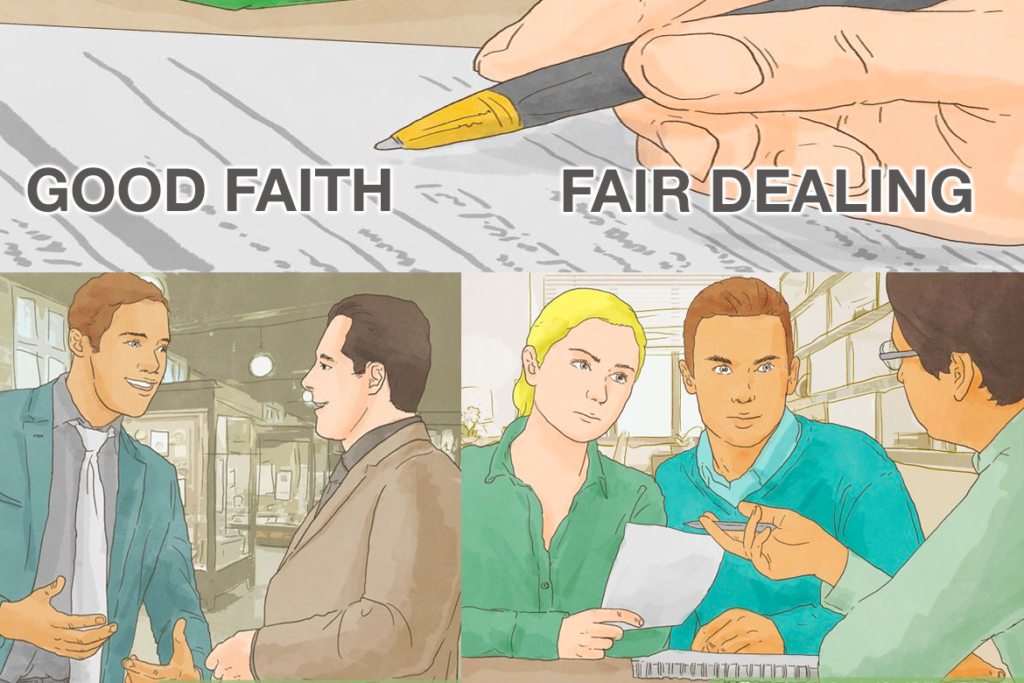
Upon knowing who is a possessor in good faith, to learn more, read: HOW DO YOU ACQUIRE POSSESSION?
-
A possessor in good faith honestly believes that his right is valid and/or that he owns the property
-
A possessor in good faith is entitled to the benefits received before the possession is legally interrupted
-
A possessor may retain possession of the property until reimbursed
Make no mistakes. Otherwise, be responsible for the consequences. If, in any manner, a mistake has been committed, good faith is always presumed.
What is good faith?
Supreme Court says:
Good faith is an intangible and abstract quality with no technical meaning or statutory definition, and it encompasses, among other things, an honest belief, the absence of malice and the absence of design to defraud or seek an unconscionable advantage.
Good faith implies honesty of intention, and freedom from knowledge of circumstances which ought to put the holder upon inquiry. The essence of good faith lies in an honest belief in the validity of one’s right, ignorance of a superior claim and absence of intention to overreach another.
When applied to possession, one is considered possessor in good faith if he is not aware that there exists in his title or mode of acquisition any flaw which invalidates it.
But, while the possessor is in good faith, what are his rights?
The law says:
A possessor in good faith is entitled to the benefits received before his possession is legally interrupted. Legally interrupted means that the true owner has sought the aid of the court in recovering the possession of the property. And the benefits received pertains to any, some, or all of the following: natural fruits, industrial fruits, and/or civil fruits.
Natural fruits refer to the spontaneous products of the soil such as trees that naturally grows. Natural fruits include the young and other products of animals. Industrial fruits are those produced by lands of any kind through cultivation or labor such as pineapples, carrots, and other products that are results of cultivation and intervention of human labor. Civil fruits are the results of contracts or any other juridical relation such as rents of buildings, the price of leases of lands, and other property and the amount of perpetual or life annuities or other similar income.
This means that any benefit received by the possessor in good faith remains to be his. The possessor is not mandated by law to return in any manner the benefits already received to the true owner of the property from which he derived such benefits.
In case the possession of a possessor in good faith is now being legally questioned or challenged by a person who turned out to be the true owner of the property, or in case the possessor in good faith discovered or becomes aware that he no longer has a legal right over the property in his possession, what right(s) does he have?
The law says:
The possessor in good faith has the right to retain possession of the property until reimbursed for his expenses in repairing and preserving the property. If the expenses incurred was for the improvement of the property, the possessor in good faith may, with the permission of the owner, remove such improvement if it can be done without damage to the property from which it will be separated from.
But, if the true owner chooses not to allow the separation of the improvement from the property, the possessor in good faith is entitled only to a refund of the useful expenses or to an increased payment by reason of an increased value of the property caused by such improvement.
Furthermore, if at the time the good faith ceases, there should be any natural or industrial fruits, the possessor has a right to a part of the expenses for cultivation, and to a part of the net harvest, both in proportion to the time of possession. Also, the charges or expenses will be divided between the first possessor and the true owner in the same basis.
However, the true owner of the property may give the possessor in good faith the right to finish the cultivation and gathering of the growing fruits, as an indemnity for his part of the expenses of cultivation and the net proceeds. If the possessor in good faith refuses to accept the right to finish the cultivation and gathering of the growing fruits, he loses the right to be indemnified in any manner.
What if the possessor is in bad faith? Who is a possessor in bad faith? A related article will be posted in a few days.
Alburo Alburo and Associates Law Offices specializes in business law and labor law consulting. For inquiries, you may reach us at info@alburolaw.com, or dial us at (02)7745-4391/0917-5772207.
All rights reserved.
SUBSCRIBE NOW FOR MORE LEGAL UPDATES!
[email-subscribers-form id=”4″]


Thanks for giving your ideas. Another thing is that individuals have a choice between government student loan plus a private education loan where it is easier to go with student loan consolidating debts than through the federal education loan.